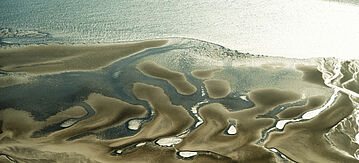Ocean Deal

G7 Ocean Deal
The G7 Ocean Deal is a key element for marine protection and conservation under Germany’s G7 Presidency.
Ocean protection
The German G7 Presidency is pushing for the effective conservation and protection of at least 30 percent of the global ocean by 2030. The G7 countries have a special responsibility here and will endeavour to reach this target as quickly as possible in their national waters.
To ensure effective protection of international waters, the international community is currently working on a UN treaty to protect and conserve marine biological diversity in areas beyond national jurisdiction. This agreement, referred to as the BBNJ treaty, would provide an opportunity to designate universally accepted marine protected areas on the high seas and set generally binding minimum standards for environmental impact assessments of planned projects (for example laying cables) for activities in areas beyond national jurisdiction. The goal of the German G7 Presidency is to support the ongoing negotiations and push for their timely and ambitious conclusion.
The effective protection of the Southern Ocean in Antarctica would be an excellent example for marine protected areas. Since 2012, within the framework of the Commission for the Conservation of Antarctic Marine Living Resources (CCAMLR), Germany and the European Union have been advocating the designation of the Antarctic Weddell Sea as a marine protected area.
In addition to protecting and conserving the world’s ocean and seas, it is also necessary to restore marine and coastal ecosystems (for example, seagrass beds and salt marshes). Healthy marine ecosystems are a key building block for successful climate action. The seas have to date absorbed about one third of anthropogenic CO2 emissions and about 90 percent of the additional heat generated. During its G7 Presidency, Germany is therefore advocating nature based solutions for coastal and marine ecosystems and building on global debates within the UNFCCC and UNEA processes.
Sustainable use of the global ocean
Despite the drastic condition of the world’s ocean and seas, pressure from increasing human exploitation still continues to rise. This is the case in deep sea mining; within the G7 framework, Germany hopes to gain support for establishing the highest possible environmental standards.
The prevention of marine pollution, particularly plastic pollution, remains a priority of G7 cooperation. Efforts in this area are currently focussed on the negotiations for a global agreement to combat plastic and marine litter. Together with the G7, Germany wants to advance this issue by taking action before the negotiations are concluded.
Fish are the most important economic resource provided by our ocean and seas. Unfortunately, the ocean and seas are still being overfished, and a lack of controls and even government subsidies continue to facilitate illegal, unreported and unregulated fishing (IUU fishing). The G7 intends to work together to finally and effectively combat illegal fishing.
